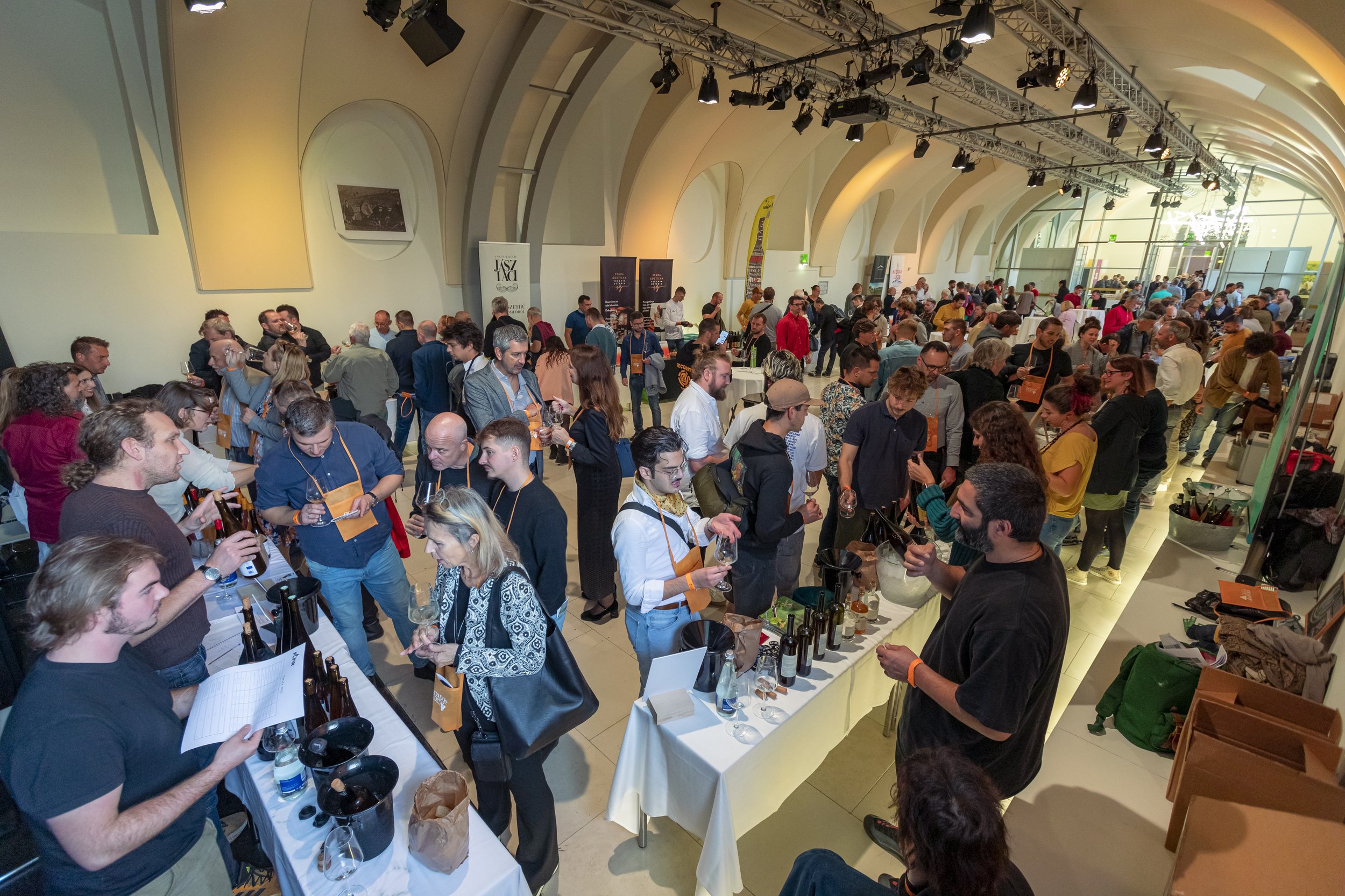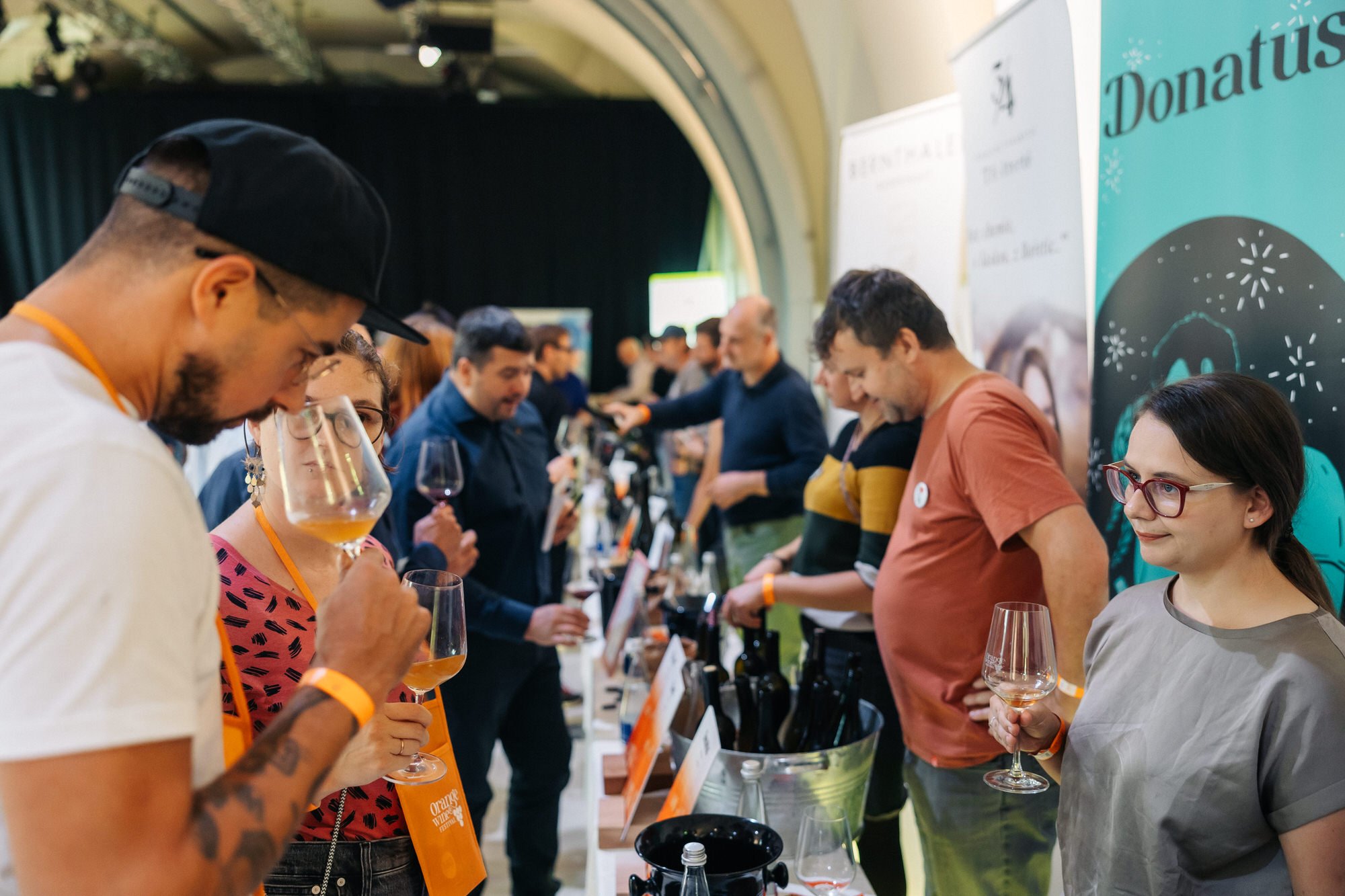
Our Story
About Orange Wine
Where does orange wine get the soul from
The term “orange wine” is relatively new. It was formed by the practical British sommeliers to give an exact description of wine made of white grapes and left in contact with grape skins over a longer period of time (maceration). The same procedure is commonly used for red wine production. Likewise, it has been a tradition in white wine production, since white macerated wines were also produced long ago. Through maceration, additional color pigments and tannins are eluted from grape skins, which impart the wine with a deep color of old gold or amber. In some places, but mostly in Georgia, macerated white wine is known as “amber wine”. The sensory perception range with orange wines is wide. The taste is typically tannic, with the primary aroma of grapes, but also fresh fruits, with exposed herbal notes.
Very natural process of vinification
The main feature of orange wine is maceration or prolonged skin contact. Winemakers decide on different maceration times - depending on the type of grape as well as the wine production philosophy. Thus, maceration time can be either short (a few days) or very long (up to half a year). The latter is concerning especially the fermentation in qvevris, the originally Georgian clay amphoras.
Orange wines are the result of natural procedures. Main characteristics are spontaneous fermentation and long aging periods on lees in wooden barrels – no adding wine yeasts, no cooling in the fermentation phase. They are usually not filtered before bottling, which is done only after the wine has cleared up - also considering moon phases.
Healthy grapes and natural production procedures provide orange wines with a supreme self-protection ability. For this reason, only a small amount of sulfur is needed to keep them stable. Orange wine producers are committed to sustainable production. Many produce their wine according to the principles of organic agriculture; some apply biodynamic methods. Compared to conventional wine production, crops are smaller and the aging time in cellars is longer.
Orange wine producers are keepers of a healthy and orderly cultivated landscape. Among other, the revival of old winemaking procedures helps preserve forgotten grape varieties, making orange wine producers keepers of an important tradition.
Orange wines – where they come from
One of the global epicenters of orange wine production is spreading across the wine growing regions of Slovenia, Italy and Croatia, located around the northern Adriatic Sea. Combining old knowledge with new insights, more and more winemakers are returning to traditional winemaking procedures. One of the most exposed regions of orange wine production is stretching like an arch from Friuli over Collio, Brda, the valley of Vipava and the Karst to Istria. This area is home to some globally renowned orange wine producers.
In Georgia, the original homeland of wine, its production represents a tradition, upon which the Georgians have built their reputation. The wine production in qvevris - clay amphoras buried in soil, where the wine is kept in contact with grape skins for a long time after fermentation - has spread far beyond the borders of Georgia, mostly to the countries of Central and Western Europe.
Orange wine is produced in almost all traditional wine growing regions of Europe - besides the ones stated, there are France, Spain, Greece, Hungary, Germany, Slovakia, Czechia, Serbia etc. Some producers are located in new winegrowing regions, like New Zealand and the USA.
Wines with a personal signature
Orange wines are produced mainly on boutique wine-growing estates. Producers are mostly farmers cultivating small or medium-sized family estates. Orange wines are wines with a personal touch. Processing of grapes and wine requires plenty of love, manual work and diligence watching over quality and proper aging. Personal engagement leaves a unique imprint on the product. The most exposed orange wine producers like to emphasize that their work does not allow for compromises.
Orange wines display character, featuring the author’s personal touch. Hence, each tasting in the company of the winemaker will turn into a special experience.


